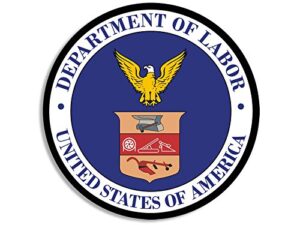Federal Court Invalidates Increase in Minimum Salary for White Collar Exemptions
December 10, 2024 by Margaret Mead
 A federal court has invalidated the salary changes implemented by the Department of Labor in 2024, which raised the minimum salary for certain “white collar” exempt employees. See State of Texas v. DOL, NO. 4:24-CV-499-SDJ (LEAD CASE), CIVIL NO. 4:24-CV-468-SDJ, 2024 WL 4806268 (E.D. Texas Nov. 15, 2024) here.
A federal court has invalidated the salary changes implemented by the Department of Labor in 2024, which raised the minimum salary for certain “white collar” exempt employees. See State of Texas v. DOL, NO. 4:24-CV-499-SDJ (LEAD CASE), CIVIL NO. 4:24-CV-468-SDJ, 2024 WL 4806268 (E.D. Texas Nov. 15, 2024) here.
On April 23, 2024, the DOL announced a final rule to increase the standard salary level for the executive, administrative, and professional (EAP) exemptions and the total annual compensation threshold for the highly compensated employee (HCE) exemption (89 Fed. Reg. 32842).
The first increase took effect July 1, 2024, increasing the minimum salary level for the EAP exemptions from $684 a week to $844 a week, and the minimum total annual compensation for the Highly Compensated exemption from $107,432 to $132,964. (Note there are exceptions for specific U.S. territories).
The second increase, raising the minimum salary level to $1,128 a week and the minimum total annual compensation to $151,164, was scheduled to take effect January 1, 2025, with subsequent updates at three-year intervals starting July 1, 2027. It increased the salary threshold in a manner that effectively eliminated the FLSA’s “duties test” that requires EAP-exempt employees to have certain duties.
On November 15, 2024, the U.S. District Court for the Eastern District of Texas vacated and set aside the 2024 rule, holding that the DOL exceeded its authority. This decision reverts the EAP salary thresholds to the 2019 rule at $684 a week (equivalent to $35,568 annually: see here) for the standard salary level and $107,432 total annual compensation for HCE. The DOL has appealed the decision to the Fifth Circuit.
Even if the Fifth Circuit upholds the District Court’s ruling, the standard may be changed after the new administration takes office in January 2025. Employers should be aware that the 2024 law is not in effect right now, and that they may pay otherwise exempt workers at the 2019 salary level, but they should pay close attention to changes that may be forthcoming.



